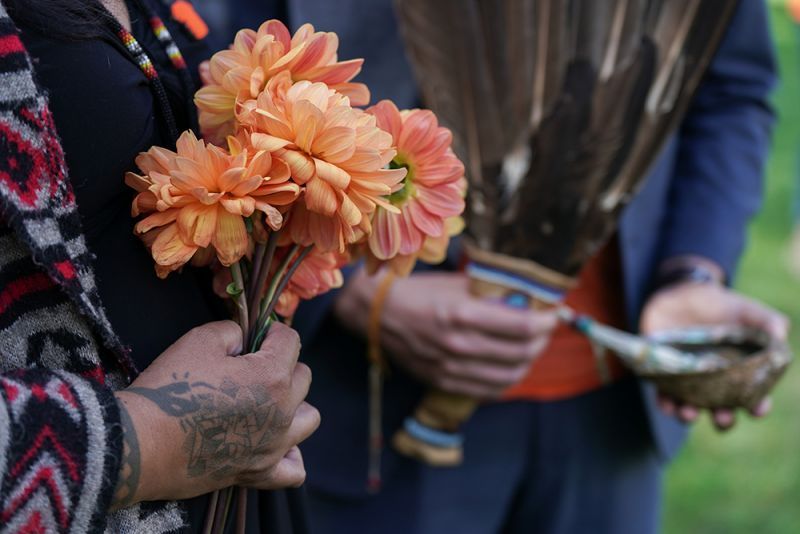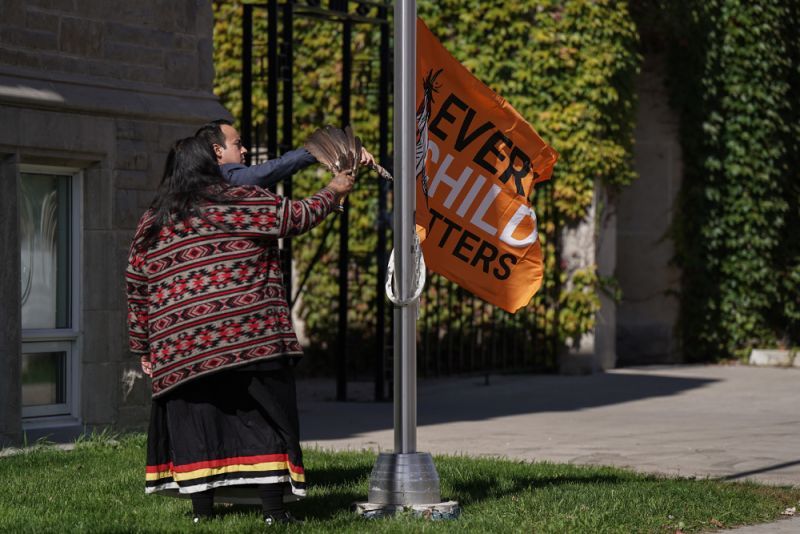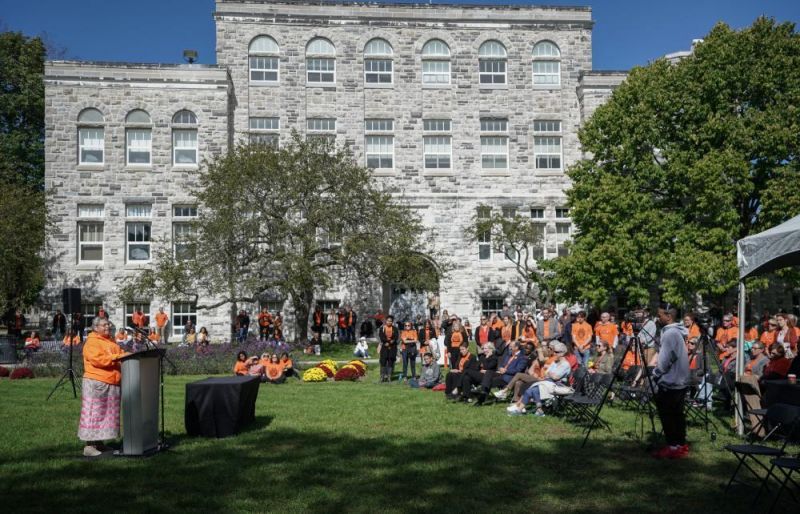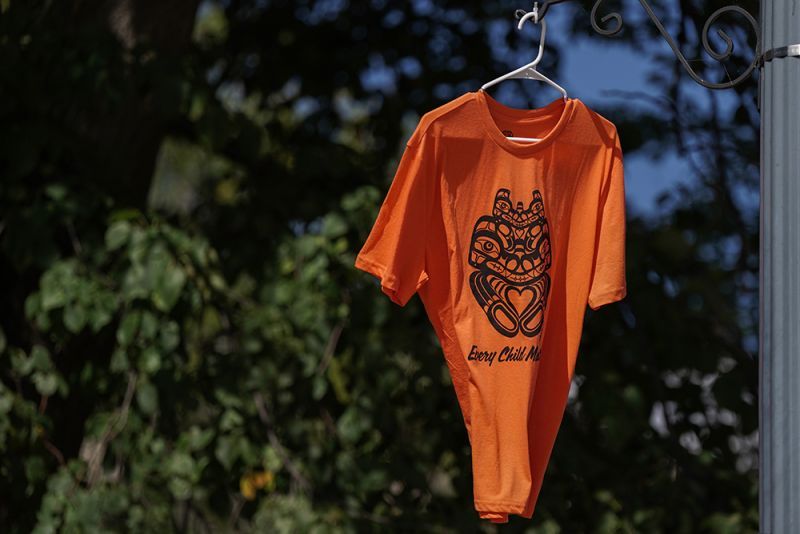
Queen's marks National Day for Truth and Reconciliation
Dressed in orange, campus community members gather to reflect on residential school legacy and commit to ongoing learning and collaboration.
Queen’s community members gathered outside Richardson Hall to witness the raising of the Survivors Flag and the Every Child Matters flag—both symbols of remembrance meant to honour Indigenous people, children, and communities impacted by Canada’s residential school system. Those gathered—most wearing orange in a show of solidarity—paused for a moment of silence and reflection, marking what is Canada’s second official National Day for Truth and Reconciliation.
“Today, we hold in our hearts all of those harmed or lost to Canada’s residential school system, and stand with survivors and their communities in solidarity, support, and mutual healing,” says Kanonhsyonne (Janice Hill), Associate Vice-Principal (Indigenous Initiatives) of the occasion, which has also been long known as Orange Shirt Day. “Let us commit to ongoing listening and learning and commit to daily actions that build trust and advance reconciliation.”

Every Child Matter flag being raised outside Richardson Hall. It was raised alongside the new Survivors Flag.
With the flag unfurled, attendees then crossed University Avenue to attend an open sacred fire ceremony on Agnes Benedickson Field. On the way, they passed below orange shirts hanging from the lampposts that line the thoroughfare from Union Street to Stuart Street.
Once congregated around the Sacred Fire, the crowd was greeted with an Indigenous welcome by Wendy Phillips, Elder-in-Residence with the Office of Indigenous Initiatives, and remarks from university leaders.
“Our university is deeply committed to the work of reconciliation, and it is important to make time to listen and learn about the legacy of Canada’s residential school system,” says Patrick Deane, Principal and Vice-Chancellor. “As we reflect on this important national day, we must personally undertake to carry this intention forward. We must continue to create and nurture a campus community in which everyone feels safe and welcome to share their experiences, and in which we work together to build trust and understanding.”

Kanonhsyonne (Janice Hill), Associate Vice-Principal (Indigenous Initiatives), shares her thoughts on the importance of the National Day for Truth and Reconciliation and our commitment to ongoing listening and learning.
The Sacred Fire Ceremony is one of several events, initiatives, and learning opportunities that took place at Queen’s leading up to, and on September 30. Among those events were Indigenous art exhibits and crafting workshops, an Elder meet-and-greet, and learning sessions, as well as a collaborative commemorative display led by the Faculty of Health Sciences.
Similar to last year, Queen’s purchased and distributed over 3,000 orange shirts, 5,000 commemorative pins, and 7,500 bookmarks to students, with purchase proceeds going toward supporting the Orange Shirt Society, as well as Indigenous-led programs supporting residential school survivors.

One of several orange shirts that were displayed on the lampposts lining campus' University Avenue.
Queen’s Chancellor Murray Sinclair also shared an educational video message discussing how the term reconciliation arose and what it means in Canada.
“In simple terms, reconciliation, ultimately, is about this phrase: I want to be your friend and I want you to be my friend, and I want us to see each other as equals so that, whenever I need your help you will be there to give it to me, and whenever you need my help I will be there to give it to you,” said Chancellor Sinclair, who served as head of Canada’s influential Truth and Reconciliation Commission (TRC). “If we can think of reconciliation in those very simple terms then it will help guide the actions that we need to follow going forward.”
Queen’s students, faculty, and staff are urged to read and sign their name to a commitment to reconciliation created by the Office of Indigenous Initiatives, declaring a promise to pursue ongoing listening, learning, and actions.
To facilitate continued learning, there are several resources detailing Truth and Reconciliation, decolonization, Indigenous ways of knowing and being, and much more on the Office of Indigenous Initiatives website.
Note: This article originally appeared in the Queen's Gazette.

